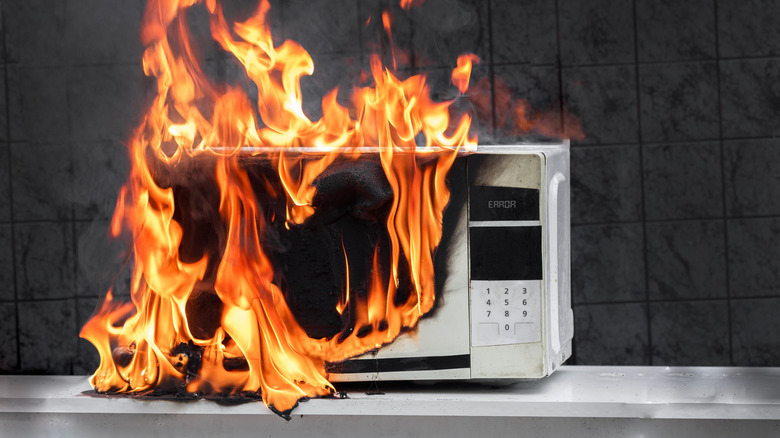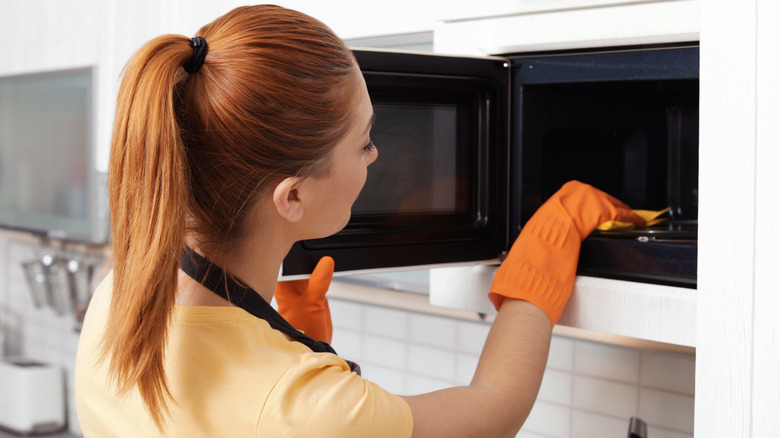How Old Spills Can Damage Your Microwave
Electromagnetic radiation sounds a little scary, doesn't it? If you're hit with too many microwaves (and we don't mean the physical objects) you might suffer a burn, according to the Food and Drug Administration. For this reason, manufacturers are legally required to protect you from what goes on inside your microwave oven. Instead of you, all the heat is directed into your quick snack or meal. That's why it's so important to keep your microwave in working order. Besides, who wants a non-functioning appliance they have to replace (especially if it's rigged into the kitchen itself)?
There are several ways your microwave can get damaged, per Consumer Reports. Running the appliance for too long can overheat it. Too much steam from the stove can seep into electronic inner workings. Broken doors can trigger fail-safes, disabling the oven. Dirty grease filters and microwaved metals can even start fires. All of that may seem a bit extreme, but there's one far more common risk factor that may be harming your microwave without you even realizing it.
Old microwave spills become hotbeds
Let's say you heat up tomato soup in the microwave without covering the bowl. Unnoticed by you, that broth likely splattered everywhere, or bubbled up and spilled over the sides. Hungry and eager to eat, you grab your hot meal and dig in, not paying attention to the mess you left behind. Unfortunately, those ignored traces of food will heat back up again and again, every time you use your appliance. Not only could that constantly release smelly odors, but that hotspot may harm the oven itself as it burns the thing from the inside (via Consumer Reports). Then, there's germs. Rise and Shine Cleaning Service says microorganisms flourish there, where they have all the heat and sustenance they need. Your old spills could make you sick.
So, make sure to clean your microwave often. The easiest way to do this is to wipe up any spills as soon as they happen, before they set in and get forgotten. Regularly running the turntable through the dishwasher also helps prevent dangerous build up. If you're trying to eliminate stains, use a warm, wet rag. Sometimes you'll have to use vinegar if you want to get rid of old and resilient gunk. Since you're dealing with electronics, it's a good safety measure to unplug your microwave when cleaning (via the U.S. Department of Agriculture). Microwaves are designed to make your life convenient, so do a little work on yours, and it can do a lot in return.

